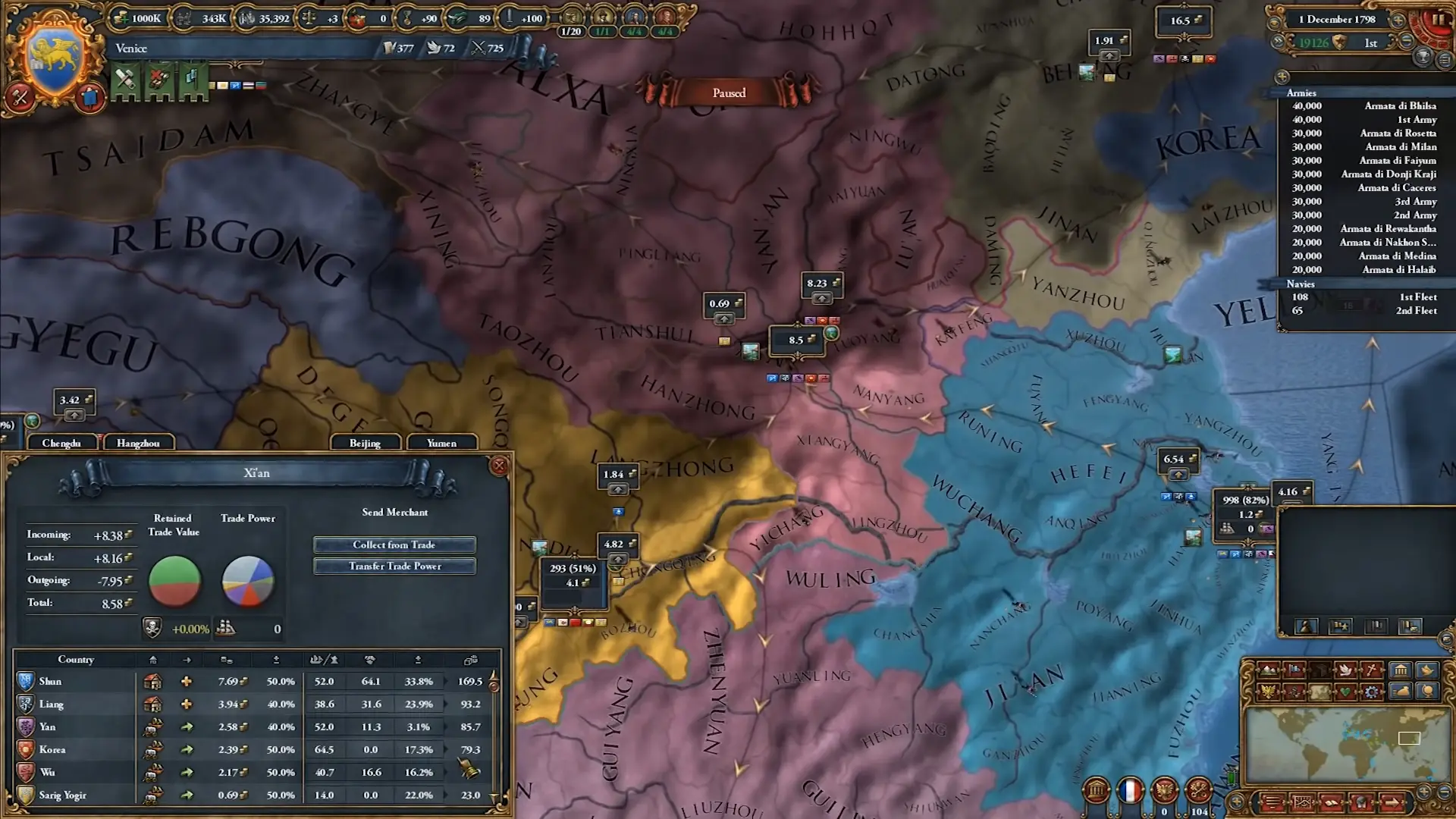
EU4 Trade Walkthrough (Companies, Goods, Nodes, Merchants)
I have noticed that many players with thousands of hours on Europa Universalis 4, still *only* have a rough idea of the mechanics of trade. However, if broken down, trade is simple and easy to learn. For this reason, this article will be providing an in-depth guide for understanding the fundamentals of trade, within the Europa Universalis universe. Welcome to: A Complete Guide to Trade in Europa Universalis 4
EU4 Trade Node
Every single province encapsulated in Europe Universalis 4 has its associated trade node, and many provinces come together to create 1 trade node. This is clearly displayed in the trade map mode, located in the diplomatic map mode. This map mode allows the player to clearly identify which provinces are allocated in which trade node.
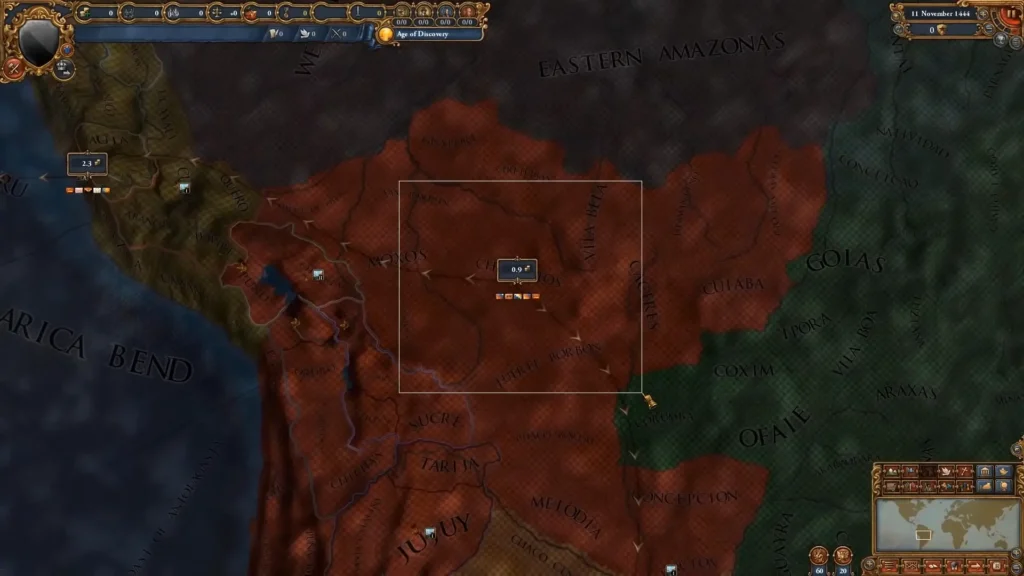
Each trade node has lines with arrows moving to and away from the trade node. This symbolizes the potential flow of the ducats (Europa Universalises 4 currency). Common terminology is:
- Trade nodes ahead of a trade node are “Downstream” from the trade node.
- Trade nodes behind a trade node are “Upstream” from the trade node.
Trade nodes can never be changed, so it is vital to capitalize on all available trade nodes possible.
EU4 Trade Value
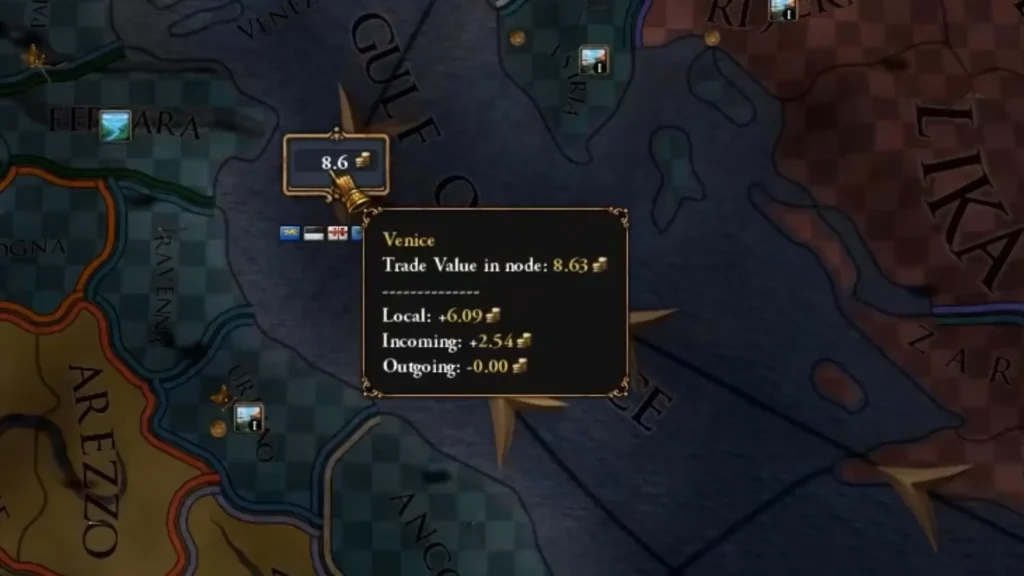
The trade value in a trade node is the number of ducats currently available within the trade node. There are various factors that contribute to the trade value of a certain trade node, these are:
- Incoming – the number of ducats flowing into the trade node from trade nodes upstream from the trade node.
- Local – the number of ducats produced within the trade nodes provinces.
- Outgoing – the number of ducats flowing downstream from the trade node.
The value in the trade node is equivalent to:
- Incoming + Local – Outgoing = Trade value
The percentage of ducats that you receive from a trade node will be discussed within the “Trade Power” section.
EU4 Trade Power
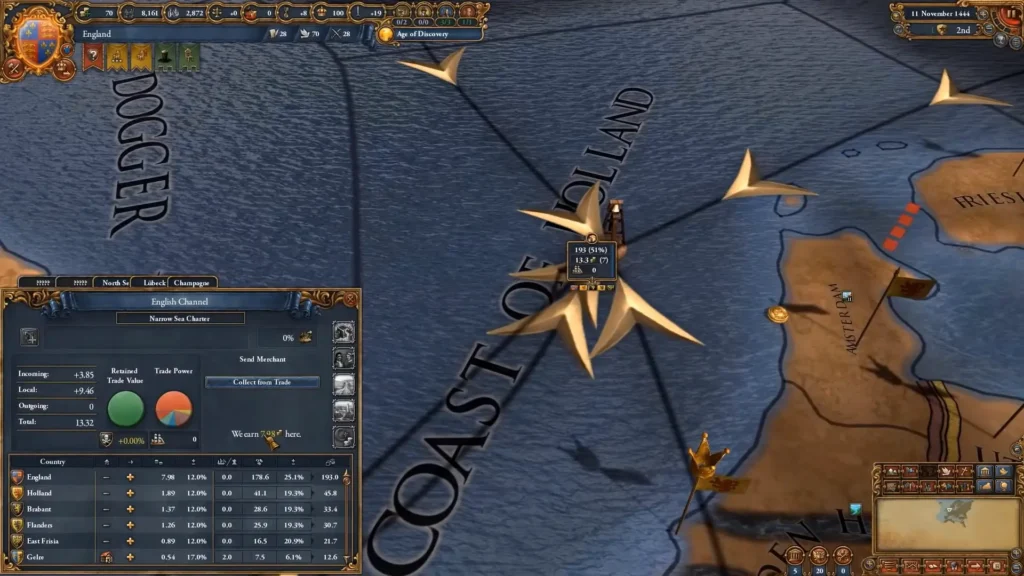
Within Europa Universalis 4, the goal of trade is to direct trade to your home trade node and to collect it, without it being partitioned and siphoned by others. The primary method countries compete, is trade power. Trade power represents the percentage of ducats a country receives from a given trade node. There are 3 main ways to increase a nation’s trade power in a certain trade node.

- Each province controlled by a nation provides trade power in the province’s trade node. The trade power of a given province is displayed in the bottom left, this can be improved by increasing the province’s total development.
- Nations get 1/5 of the provincial trade power, of downstream trade nodes. This means that for all the trade nodes a certain trade node is connected to, opposing nations will take a larger percentage of that trade node.
- Nations can send lightships to protect trade power in a given node, each lightship gives an extra +2% trade power, and this number increases as the player gets better lightships throughout the game.
EU4 Merchants
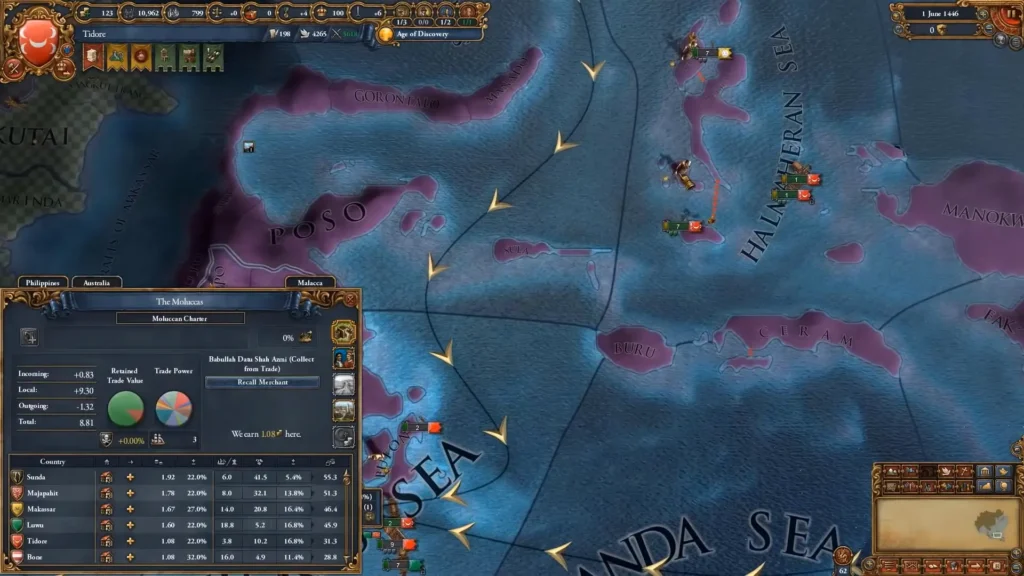
How do nations convert the trade power in a given node into usable ducats? By merchants! Merchants are envoys used for trade to conduct 1 of 2 missions, these are:
- Transfer Trade Power – Merchants use their share of trade power in the node to push trade value downstream.
- Collect Trade – Merchants use their share of trade power to collect a portion of the trade value in a trade node.

Other Trade Mechanics
There are various other useful trade mechanics available to nations, such as:
- Transfer Trade Power – This feature allows a country to force another country (such as Lubeck) into giving up all its trade power in all its trade nodes. This can be done diplomatically (DLC required), or forcefully via a peace deal.
- Embargo – Embargos are a diplomatic action that decreases a target nation’s trade power in all trade nodes that both nations have trade power.
- Privateering – This is a special mission, available to lightships. This ability increases your trade power in a certain node, and you will receive 40% of what the pirates collect.
If you are beginning Europa Universalis 4 or interested in learning more about the game, check out some of our other guides…